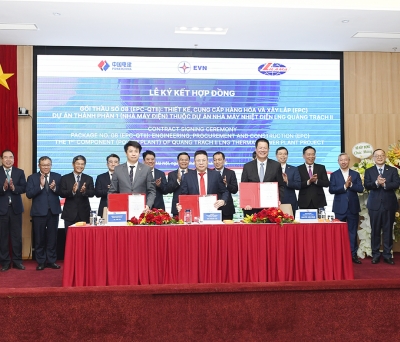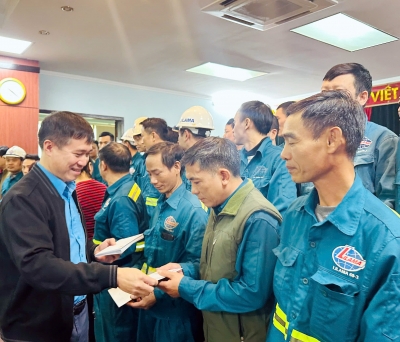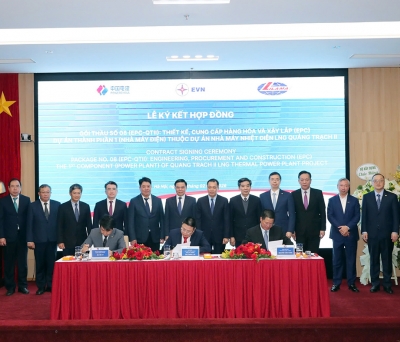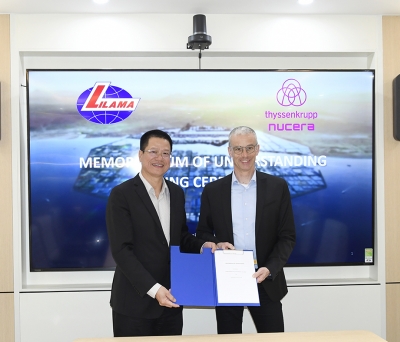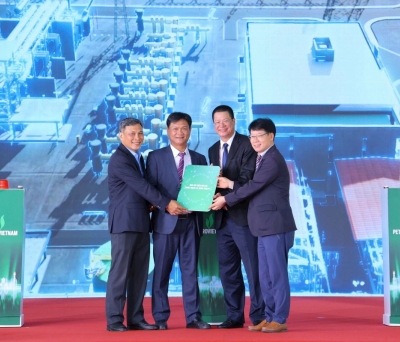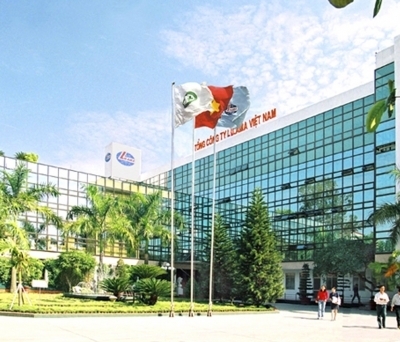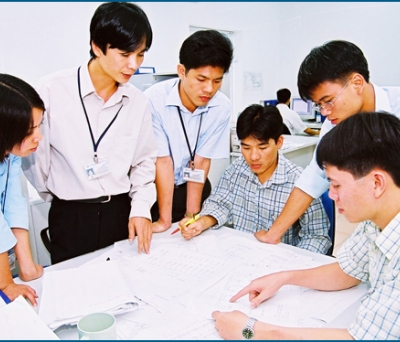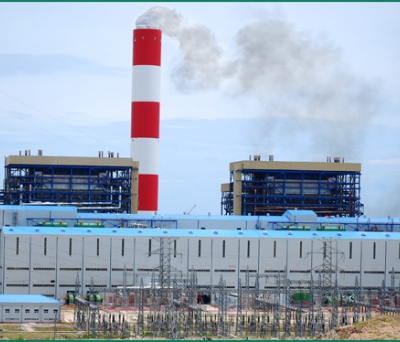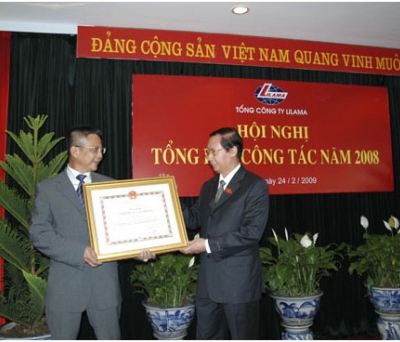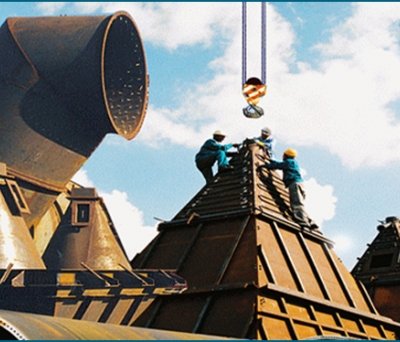Components made in Vietnam
The mechanical branch is now facing many difficulties when domestic market gradually falls into the hands of foreign firms. So, together with the efforts of mechanical enterprises, support from state is very necessary for them to overcome hardships this time. Experts say that the most practical support now to mechanical enterprises is tax reduction.
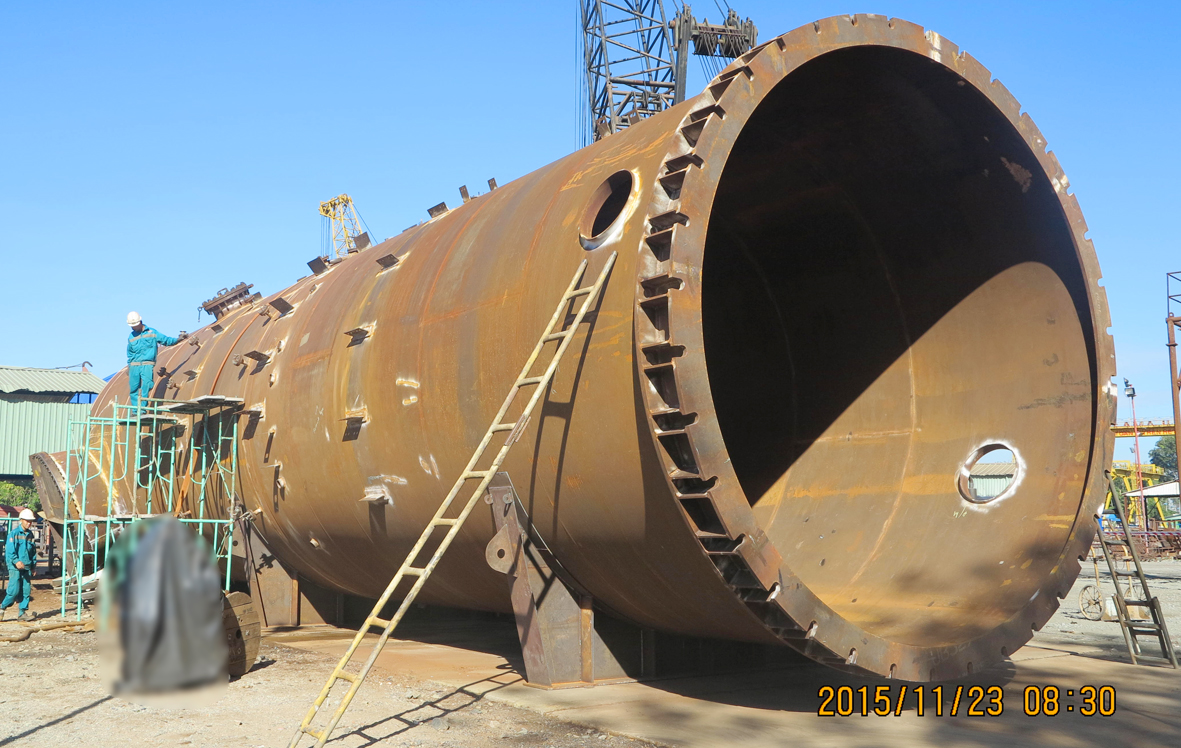
Installing equipment in Lilama 18 JSC
Enterprises take the initiative in searching for markets
According to Mr Le Van Tuan, General Director of LILAMA Corporation, Vietnam had joined the World Commercial Organization, FTA, and recently Trans-Pacific Strategic Economic Partnership Agreement (TPP)… and had to observe the commitments of these organizations. Even governmental capital market does not belong to the Government, but it is international loan from ADB, WB ... and so, public biddings are compulsory according to requirements of international credit organizations. That is why, enterprises cannot expect the Government to give them markets and they themselves have to take the initiative in searching for markets.
However, in the context of wide & deep international economic integration nowadays, many enterprises and businesses still keep their old way of working, the quality of their products is not stable, delivery of products is late and all these things make enterprises lose their international orders and domestic market gradually falls into foreign firms' hands. “Failure at home” is the phrase to be mentioned again and again when talking about mechanical businessess recently.
The story of General Elictric (GE) to seek Vietnamese partner to place an order was a typical example. GE has its headquarter in Hai Phong and they wanted to order some mechanical products nearby for convenient transportation. GE carried out a survey in a mechanical business in Hai Duong. However, through the survey, this company could not meet their demands. Although they wanted to cooperate with the company very much for convenience, and a contract had been signed between both parties, at last GE still canceled the contract vẫn phải hủy. They had to place their order with another company in Thai Nguyen with much higher price and higher transportation cost. We must say the enterprise that GE signed their contract with is a Korean firm in Thai Nguyen but not a domestic one.
Thus, weakness and shortcoming of domestic mechanical enterprises has taken their orders to foreign firms, mostly the ones of Korea and Taiwan. There are lots of reasons, but the main one is just domestic companies can not satisfy requirements of their partners. Some businesses can meet the demands but only in the first orders. After that, the quality gets worse and worse and it make their partners lose belief in them. In addition, if a domestic company sign a contract successfully with foreign partners, it is difficult for them in the competition of product delivery schedule because Vietnam has no source of iron & steel materials for mechanics and has to import from China. Not to mention the long time of good delivery, possibility of late schedule, many of foreign firms do not want to order products with materials from China.

Installing vessels & tanks is one of the strong points of Lilama
Components ‘made in Vietnam’
According to Ministry of Industry & Commerce, for the time being there are about 14,800 mechanical enterprises all over the country. However, there are only 12 ones having more than 5,000 employees and 116 ones with more than 1,000 labourers. Regarding capital size of over VND 500 billion, there are approximately 100 businesses. Thus, the quantity is few and the scale is very little. When domestic markets are being lost gradually, mechanical enterprises must seek international ones by participating in the global associate chain of big corporations. Mr Le Van Tuan reckons with the potential of mechanical branch this time, to create a mechanic product ‘Made in Vietnam’ is very difficult. Instead, we can build components ‘Made in Vietnam’. When we attend the global supply chain, a whole machinery product can bear another brandname, but a component of it can be ‘Made in Vietnam’. The story of automobile branch in Thailand is an example. In fact, Thailand has no automobile trademark, but many components of Japanese Toyota cars installed in Vietnam are made in Thailand. “Just some components ‘Made in Vietnam’ appearing in the global associate chain is very precious”, affirms Mr Tuan.
Together with the efforts of mechanical enterprises, support from state is very necessary for them to overcome hardships this time. And mechanical enterprises consider that the most practical support now to them is tax reduction. Actually, mechanical businesses are almost located in remote regions with difficult travelling conditions. Industrial projects are also built in areas having severe living conditions and it is not simple to attract labourers. Whereas, they are enduring the same taxation as those in centres of Hanoi, Hai Phong, Ho Chi Minh city where are more convenient and attract labourer easily. Thus, to encourage and give justice to mechanical enterprises, we think together with tax reduction there should be different levels of tax. For example, businesses in Hanoi pay impost of 10% but enterprises in Lai Chau pay only 5%. Different tax levels should be also applied between cities and suburbs to encourage investment in remote areas. All mechanical enterprises reckon the taxation of 22% for the time being is too high. Regarding export duties, the State should impose 0% tax to encourage businesses to export, earn foreign currency, create jobs and popularize Vietnamese trademarks worldwide.
However, these are just short term solutions. In the long term, mechanical enterprises should take the intitiative in changing gradually from installation to manufacture, build stable finance with good factories, good management systems so that they can change their professions if necessary.
article: Van Anh, photos: Mai Phuong


